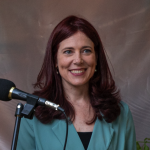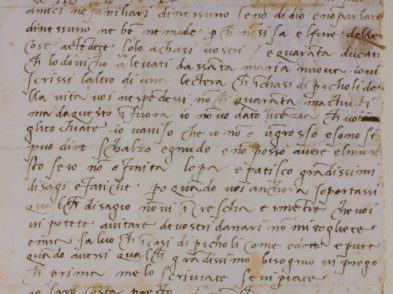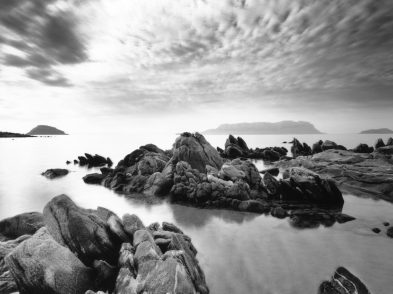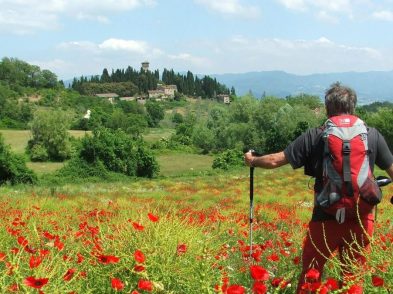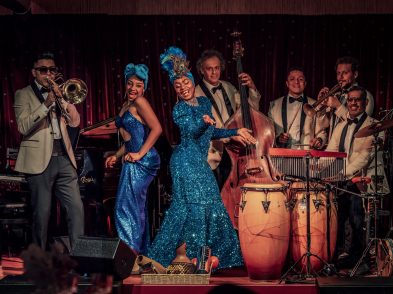About ten years ago, while giving a university lecture in Florence, I asked the mostly female class if they could name one historic woman artist each. The class shuffled their feet and screwed up their faces. What they considered a “trick question” sparked a discussion whose conclusion continues to ring true: women of all ages are still filling in the gaps in our collective history, and the search will never be purely academic. It’s about entering the world of history’s leading ladies and walking the stage upon which they played their most memorable acts. In Florence, it is not hard to rediscover historic women in the monumental venues where they lived and worked, and the event series called Palace Women: Oltrarno and Beyond, organized by The British Institute of Florence, Cultural Association Il Palmerino and Calliope Arts, strives to do just that.
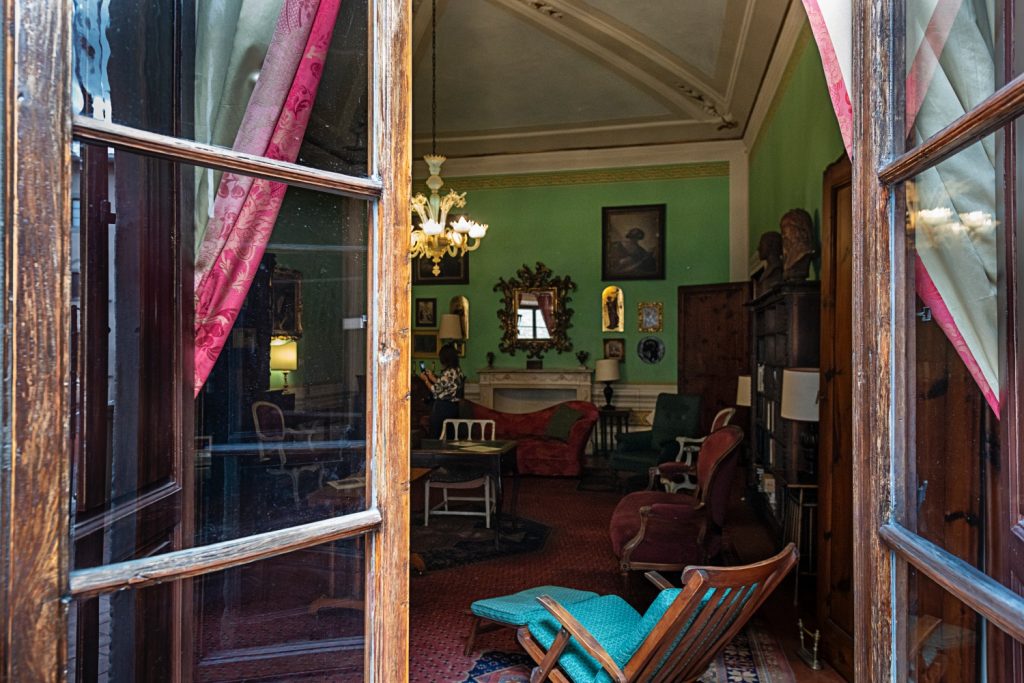
Think poet Elizabeth Browning at Casa Guidi. Think composer Ethel Smyth at Villa San Francesco di Paola. Think Bianca Cappello at her via Maggio palazzo. But first, be brave and see if you can name the women behind the following buildings:
Who was the ruler and French queen consort who promised her granddaughter Christine de Lorraine in marriage to Grand Duke Ferdinando I, as a way of preventing the French from claiming ownership of properties that originally formed part of her own dowry? She spent part of her childhood at Poggio a Caiano, before being taken hostage for three years, after the Medici were ousted from power in 1527.
Which British suffragette and spiritualist, who frequently sojourned at the Villa Bellosguardo, produced some of the turn-of-the-century’s most suggestive angel images and played a role in making the Renaissance a marketable subject for painting? From 1895 to 1914, she formed part of the Florence-based pre-Raphaelite sisterhood, along with painter and model Elizabeth Boott, the alter ego of Henry James’ muse in Portrait of a Lady.
What woman was snubbed by Florentine nobility and refused the right to live in Palazzo Pitti, the king’s royal residence, despite being the bride of Vittorio Emanuele I, King of Italy? She inspired the refurbishing of Medici Villa, La Petraia, following her “morganatic” marriage to the king, in a ceremony that prevents a groom’s wealth and titles from being bestowed upon his bride (of lesser social status). This woman’s time in Florence coincided with the city’s brief period as capital of the newly united nation.
You may or may not recognize these women—Catherine de’ Medici, Evelyn De Morgan and Rosa Vercellana—but their lives and stories are deserving of reflection and rediscovery. The same is true of all the women in the Palace Women program.
The Palace Women program from October to December
The British Institute Wednesday Lecture Series
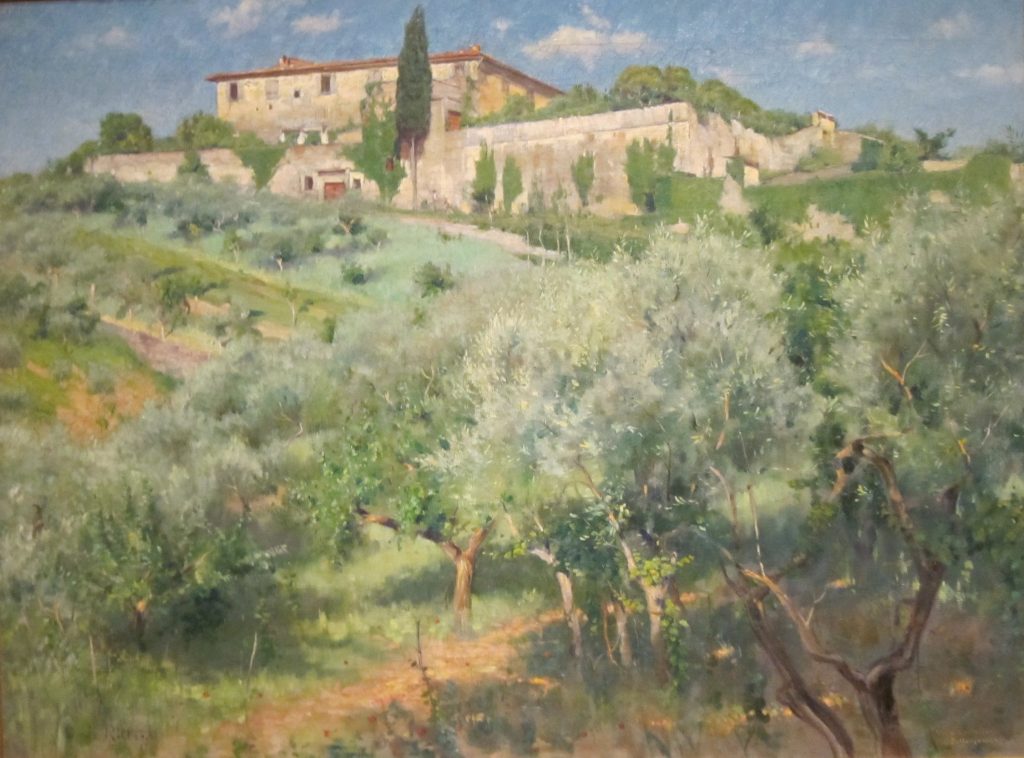
-October 18, 6pm: ‘Female Forerunners: A Room of their Own’, with Linda Falcone
-November 29, 6pm: ‘The Pre-Raphaelite Sisterhood in the Villas of Bellosguardo’, with Francesca Baldry
Details on how to attend in person and online here.
Medici villa curator-led visits
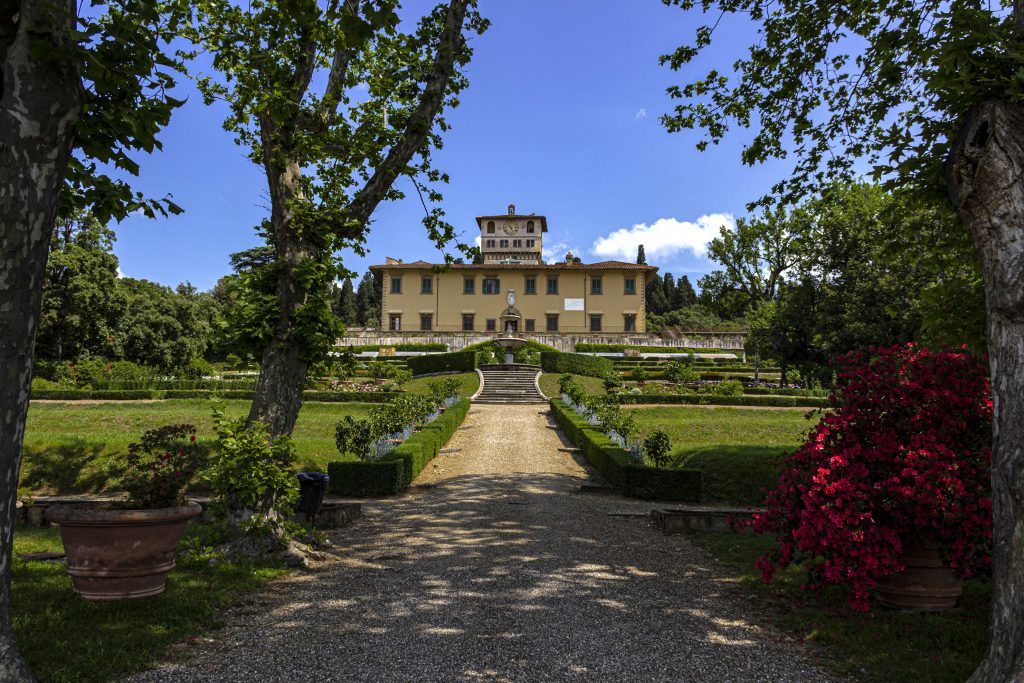
-October 24, 10.30am: ‘From Isabella de’ Medici to Emma Bardini at Villa Cerreto Guidi’
-November 28, 3pm: ‘From Ballroom to Boudoir: Villa La Petraia’s Women’
Admission free, courtesy of the museums. Visit in Italian, with curator Giulia Coco
For reservations: associazione@palmerino.it
Palace Women photography and artisans’ exhibition
13 women photographers from the award-winning Florentine cultural association Gruppo Fotografico Il Cupolone capture the modern-day creativity of artisans and art students who find inspiration in the venues that female pioneers designed, developed and populated. Craftsmanship on site for viewing and sale.
Inauguration, October 30, 6pm, Il Palmerino Cultural Association
For more details: associazione@palmerino.it
For the full program calendar, email linda@restorationconversations.org
Who’s involved
Project organizers: The British Institute of Florence, Il Palmerino Cultural Association and Calliope Arts, with special thanks to donors Alice Vogler, Donna Malin, Margie MacKinnon and Wayne McArdle. This project is made possible thanks to the support of Enjoy, Respect and Feel Florence, funded by the Italian Ministry of Tourism, the Fund for Development and Cohesion, the Municipality of Florence and Feel Florence.

